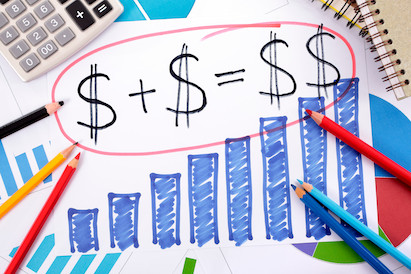What constitutes the sales tax in Spain?
In Spain, when you buy something or pay for a service, you are usually charged an additional tax called VAT, which stands for "Impuesto sobre el Valor Añadido" (Value Added Tax).
This VAT is added to almost everything you buy, whether it is small or big things.
VAT is a type of tax that does not depend on how much money you make, but on what you consume. It is different from the tax you pay based on how much you earn each year.
Right now, the general VAT is 21%, but there are some things and services that have a lower VAT, so you don't always pay the same.
Spain VAT Rates
VAT rates in Spain have different levels, and 21% is not always applied. There are mainly three categories with different percentages, depending on the product or service:
Normal
Since 2012, the standard VAT rate is 21% (previously 18%). This rate applies to all taxable goods and services that are not in the following categories. Some examples are:
- Water and energy supplies.
- Clothing and footwear
- Cars, motorcycles and their fuel
- Hygiene products and cosmetics
- Household appliances
- Internet connection
Reduced
Then there is the reduced rate of 10%. It applies to:
- Hotels and restaurants.
- Entertainment and leisure options (such as theater, cinema, amusement parks or concerts)
- Sports
- Public transportation
- Plants and flowers
- Purchase of real estate if newly constructed, including parking spaces
- Non-essential food
- Pet medications
- Disability equipment and accessories, such as contact lenses or eyeglasses
Super-reduced
This rate is only 4% and applies to basic necessities:
- Basic food (such as eggs, milk, bread, bread, fruit, vegetables, cereals, flour) and water
- Medicines for human use
- Reading material such as magazines, books or newspapers
- Social housing
- School supplies
Zero
Finally, there are services and products that are exempt from VAT. This includes some services provided by registered professionals, such as medical services from dentists, doctors or opticians. Also different types of education and learning courses. But not all are exempt from VAT, only regulated courses with a proper syllabus.
What does IGIC stand for in the Canary Islands?
IGIC (Impuesto General Indirecto Canario) is a special sales tax applied in the Canary Islands, which are part of Spain but have a different tax regime than the rest of the country. In the Canary Islands, the VAT (Value Added Tax) that applies in the rest of Spain is not used.
IGIC works in a similar way to VAT, but with some key differences. The standard IGIC rate is 7%, which applies to most transactions of goods and services carried out within the Canary Islands, as well as imports of goods.
An interesting point is the case of commercial transactions between the Canary Islands and the rest of Spain. For example, if a professional in Tenerife (one of the Canary Islands) does business with someone in mainland Spain, that transaction would be exempt from VAT. This is because the Canary Islands have a special tax regime and are not subject to the VAT system that applies in mainland Spain and the rest of the European Union.
VAT Refund for Tourists and Visitors in Spain
If you are a non-EU foreigner visiting Spain, you have the possibility of recovering the VAT on your purchases. This applies when you buy more than 90 euros in stores that participate in this system (look for a sign indicating this before you buy).
To obtain the VAT refund, you must follow these steps:
- Save Receipts and Invoices: Keep all receipts and invoices for your purchases.
- Go to a Refund Point: Take your receipts, invoices and purchased items to a VAT refund point. These points are usually located at airports, international travel centers and tourist offices.
- Stamping Process: An inspector will review your purchases and give you a form or document to stamp. This form must be deposited in a drop box before leaving the country.
- DIVA System: Since 2019, the Spanish Tax Agency offers the online DIVA system for the digital stamping of your invoices. This system facilitates the process.
- Receiving the Refund: After approximately 60 days, you will receive the VAT refund on your credit card.
However, keep in mind that not all expenses are eligible for a VAT refund and that the refund percentage may vary depending on the region of Spain you visit.
VAT when buying products to other EU countries
When buying products from other EU countries, like France or Germany, and having them delivered to Spain (a common scenario with platforms like Amazon), the VAT treatment can be different if you have an International VAT number.
This number is known as the "Registro de Operadores Intracomunitarios" (ROI) in Spain. It's a special registration that allows businesses to trade goods and services across EU borders more efficiently. If you have this ROI number, you can request an exemption from paying VAT on these purchases.
The process usually works like this:
- ROI Registration: First, you need to be registered in the ROI, which is part of the VAT system in Spain. This registration indicates that you are an operator conducting transactions within the EU.
- Purchasing Goods: When you buy goods from another EU country, you can provide your ROI number to the seller.
- VAT Exemption: The seller, recognizing your ROI number, should not charge you VAT on these transactions. Instead, you are responsible for accounting for the VAT in Spain under the reverse charge mechanism.
- Reporting VAT: You must report these transactions in your VAT returns, and if necessary, pay the corresponding VAT in Spain.
It's important to note that this system is designed for businesses, not for regular consumers. So, if you're purchasing as an individual, standard VAT rules would apply, and you would generally pay the VAT rate of the country where the seller is based.
For detailed information and specific cases, it's always recommended to consult a tax professional familiar with EU VAT regulations.
Sales Tax Implications for Freelancers Providing Services in Spain
If you are self-employed in Spain, VAT (Value Added Tax) is one of the key taxes you will have to manage. Here's how it works:
- Collecting VAT: When you issue your invoices for services rendered, you must add 21% VAT. This percentage is the general rate, but there are reduced rates for certain services.
- VAT is not your income: Although you charge this VAT to your clients, it is not income for you. Many freelancers use it as a temporary self-financing mechanism, but in reality it is money that you owe to the Tax Agency.
- Quarterly declaration: Every quarter, in March, June, September and December, you must declare and pay to the Tax Agency the amount of VAT you have collected in the last three months.
- Intermediary Function: As a self-employed person, you act as an intermediary in the collection of VAT. You collect the tax from your clients on behalf of the State and then remit it to the Spanish Treasury.
It is important to remember that VAT management can be complex, and tax regulations vary depending on the nature of the services and goods offered. Therefore, if you have doubts or need a detailed analysis of your specific situation, it is advisable to consult a tax lawyer. They can provide you with personalized guidance and ensure that you comply with all tax obligations in an appropriate manner.







 Hello, how can we help you?
Hello, how can we help you?